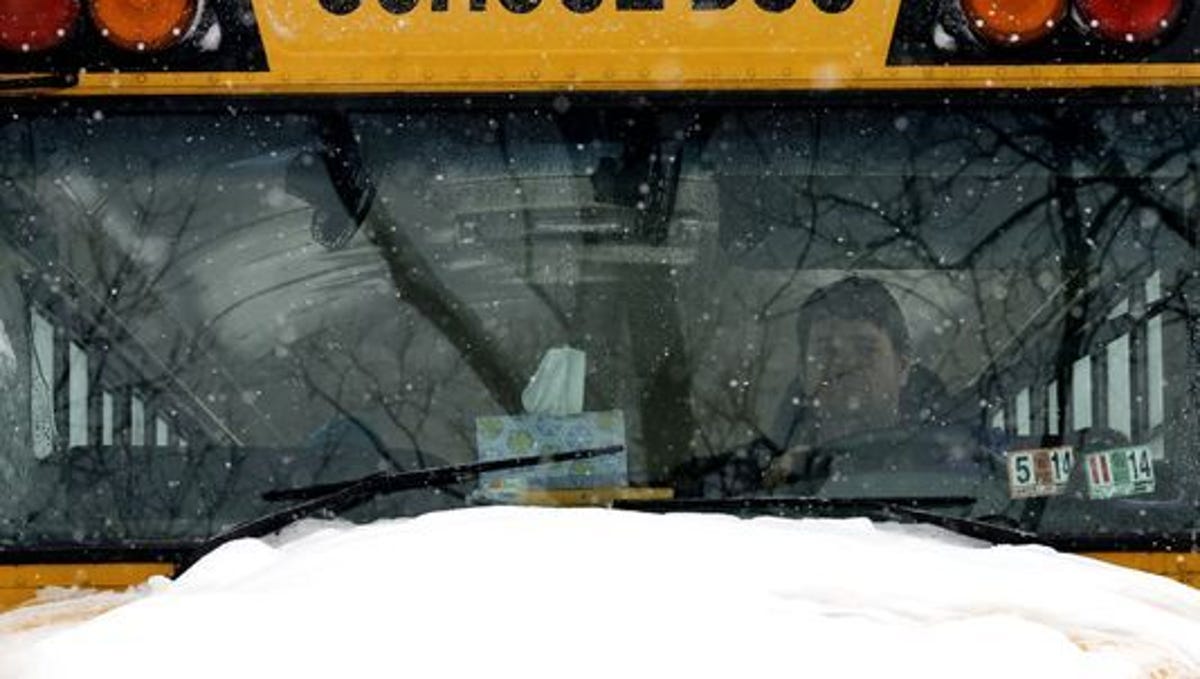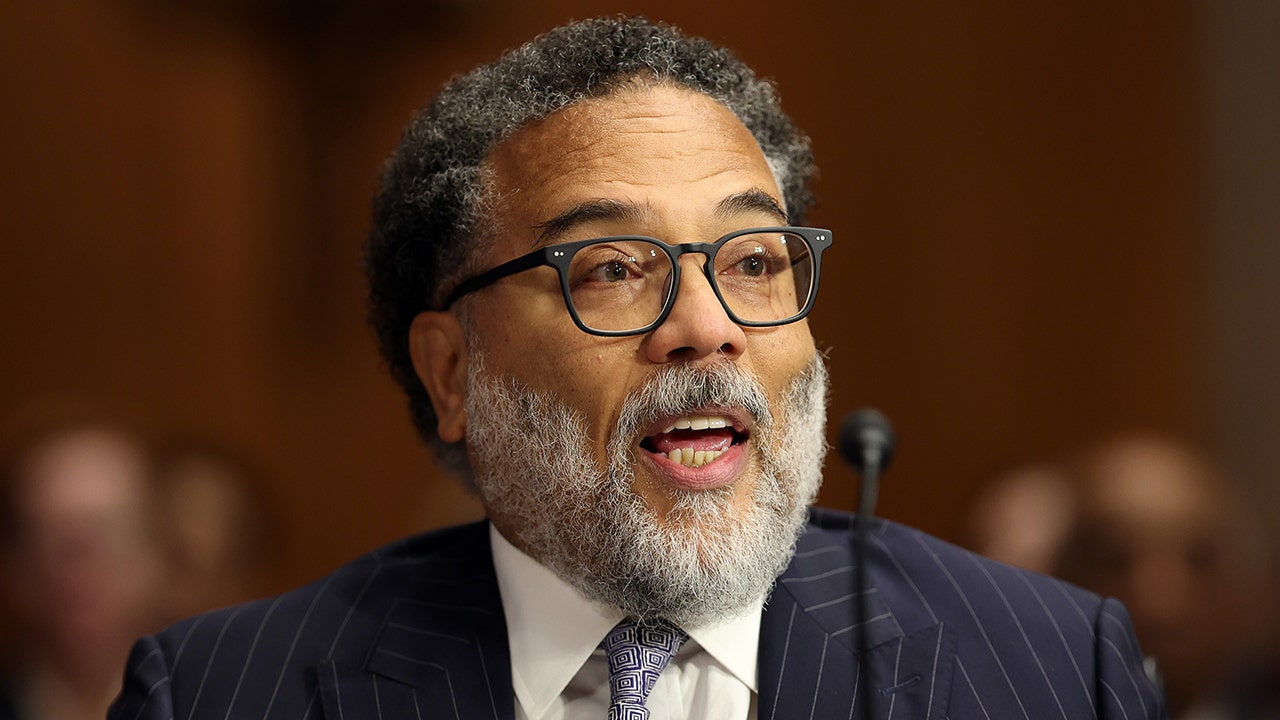North Carolina
Rudow announces congressional bid in Western North Carolina

“We need somebody who’s going to be focused on the real problems in this area, and not focused on corporate interests and creating division,” said Rep. Caleb Rudow (D-Buncombe), currently a member of the North Carolina House of Representatives.
A native of Fairview, Rudow is the product of Buncombe County Schools and earned his bachelor’s degree at the University of North Carolina-Chapel Hill in philosophy because he’d wanted to become a rabbi at the time. After graduation, Rudow served in the Peace Corps in Zambia, among other places.
“Anybody who does grassroots work at some point gets interested in policy, because they feel like there’s got to be a better way to do this, or there must be some policy solution that fixes this,” he said.
That sentiment propelled Rudow to pursue a graduate degree at the Lyndon Baines Johnson School of Public Affairs at the University of Texas at Austin, focusing on policy and data. He currently works as a freelance researcher and data consultant.
“I was going to keep doing that work internationally, and then Trump got elected and I felt like we had more work to do in this country organizing and getting rid of the meanness and bringing some sanity back to our politics,” said Rudow.
When longtime Asheville-area Rep. Susan Fisher stepped down from her seat on Dec. 31, 2021, Rudow sought the appointment and got it. In 2022, he won his first election handily, but now has his sights set on larger goals.
“I’ve really felt called to work in service my whole life, and this next election is a really historic moment,” Rudow said. “I think a lot is going to rely on what happens next year, and I really feel like we need good candidates to step up and run and serve Western North Carolina and folks in this area that have been left behind, like working families.”
Edwards’ 2022 election was largely about re-establishing trust in the institution after the less-than-stellar performance of previous Republican congressmen. Mark Meadows abandoned his seat just as the federal government passed some of the biggest spending packages in history, leaving his constituents without a voice for almost a year, and has since been indicted. Madison Cawthorn caught flak over constituent services but lost the Primary Election to Edwards after a tawdry, relentless drip campaign.
After Edwards defeated Buncombe County Commissioner Jasmine Beach-Ferrara in the 2022 General Election, he became the third straight sandwich vendor without so much as a bachelor’s degree to represent WNC in Congress — Meadows claims he owned a sub shop in Florida, while Cawthorn’s only real job before serving in the House was at Chick-fil-A. Edwards owns several area McDonald’s franchises but his legacy in Congress has left some constituents to ask, “Where’s the beef?”
“What we’ve seen Chuck do throughout this year is not focus on our biggest issues, not focus on the opioid crisis, not stay laser-focused on our economy and how we help the folks in Canton and folks around Western North Carolina, not focus on how we solve our biggest problems out here,” Rudow said. “You’ve seen him get sidetracked.”
During his 2022 campaign, Edwards failed to show for a debate hosted by The Smoky Mountain News and Blue Ridge Public Radio after criticizing Cawthorn’s debate no-shows, opting instead to appear only on a corporate-owned right-leaning television network with whom he’d spent hundreds of thousands of dollars on advertising.
Edwards had previously told SMN that if elected, he wanted to move past the Jan. 6, 2021 insurrection by shutting down the House Select Committee investigating the situation.
“What happened on Jan. 6 is a threat to our democracy and unless we deal with that, unless we make sure that we deal with the root causes of it and the people who perpetrated it face justice, our democracy is going to continue to be threatened,” Rudow said.
In January, Edwards hired Macon County activist/journalist Brittney Lofthouse as an aide, but fired her in short order after complaints from his constituents about her support for the LGBTQ+ community.
In February, SMN informed Edwards of trouble at the Pactiv Evergreen paper mill in Canton, when one of the mill’s four machines was idled by management. Edwards refused to interview with SMN at the time. A month later, the mill announced it would shut down completely, and Edwards refused to tell SMN what, if anything, he’d done in the meantime to prevent the loss of around 1,000 good-paying union jobs.
In March, when decades of inaction by Congress to adequately fund the National Park maintenance backlog resulted in the implementation of a parking fee at the Great Smoky Mountains National Park, Edwards refused to interview with SMN about what, if anything, he’d done to prevent the cost from being passed on to visitors.
In April, when the “Back off Our Benefits” tour rolled into Asheville and asked Edwards to pledge to protect Medicaid, Medicare, Social Security and veterans’ benefits, Edwards ignored them, just as he’d done the previous October.
At a town hall focusing on the impact of the Canton mill closing in June, Edwards again refused to answer questions posed by SMN about what, if anything, he’d done to save the mill after being informed of the situation by SMN a month before the closing was announced. Instead, Edwards responded by saying he’d only speak with media outlets that give him favorable coverage.
“I really reserve the right to respond to those media outlets that I’ve been able to build good relationships with that have reported the news fairly,” Edwards said at the time, without citing any examples of unfair reporting. “I didn’t respond to that question and I’m not gonna respond to this.”
At that same meeting, Edwards heard criticism from constituents when, in response to a question about how Buncombe County could help with the impact of the mill’s closing, Edwards ridiculed Asheville’s problems and refused help.
“I’d suggest the best thing that the folks in Buncombe County could do to help Haywood County is to fix Buncombe County,” Edwards told the crowd. “Clean Buncombe County up, get the needles off the streets, get a DA in place and prosecute criminals to reduce crime and not allow the spill over into our haven over here.”
Rudow, who was part of a simultaneous meeting in Candler discussing the same issue, took note.
“What you saw Chuck do there was, instead of taking that moment and providing real leadership, you saw him take that moment to score a few political points,” he said. “That is beneath the stature of a congressperson to do that, frankly.”
In September, Edwards threatened to withhold federal highway funding from the Eastern Band of Cherokee Indians, a sovereign tribal government, after voters there decided to legalize the recreational use of cannabis. Some, including SMN, decried Edwards’ meddling in tribal affairs. Also in September, Edwards sent a field representative to Murphy to present an award to a fringe law enforcement group that has ties to white supremacy, espouses COVID-19 conspiracy theories, embraces election denialism and advocates the thoroughly debunked “sovereign sheriff” movement.
In October, Edwards was notably absent when a Waynesville native and Vietnam-era serviceman missing in action for more than 50 years was returned to his hometown for burial. Edwards was stuck in Washington, D.C., because of the leadership fight caused by his own party when members ousted Speaker Kevin McCarthy (R-CA) and spent three weeks fighting with each other over who would eventually serve.
In November, after the North Carolina General Assembly gerrymandered congressional maps to change a 7-7 partisan balance to an 11-4 map in favor of Republicans, Edwards announced his reelection bid. His district changed little from 2022, moving from 55% Republican to 56% Republican.
“I think there’s a trend in a lot of this, which is Chuck Edwards taking his eye off the ball, off of our biggest problems,” Rudow said. “Instead of working together with folks across the aisle on solutions for folks who lost their jobs at the Canton paper mill, he wanted to take a cheap shot.”
A consistent wedge issue that Republicans have exploited in previous races is firearms regulation. Rudow said he’s tried to reach across the aisle in the General Assembly but hasn’t gotten anywhere.
“This is a dichotomy that the GOP keeps pushing, which is that Democrats want to take your guns away. We do not,” Rudow said. “What you have in the GOP is a party that has been controlled by the NRA and corporate gun lobbyists. Every time something happens, I’ve tried to talk to Republicans and be like, ‘Look, this happened again, can we please do something? I think we can all agree on some common-sense gun safety regulation, that everybody can agree that there are some people that shouldn’t have guns because they’re dangerous.’ But even if you don’t want to deal with that, let’s at least talk about the mental health crisis.”
The nation’s mental health crisis, whether combined with illicit drug use or not, has also not been addressed.
But there is one issue that Edwards didn’t have to deal with during his previous campaign — the conflict between Israel and Hamas. Rudow lived in Israel for three months and is the only Jewish member of the N.C. House, but he also thinks that countering Russian aggression in Ukraine is part of the United States’ overall obligation to defend democratic values.
“Big picture, I think we’re seeing a world in which if America retreats from the world stage, things get worse, not better,” he said, noting that he supports continuing aid to Ukraine. Israel, however, is a far more nuanced topic.
“I think with a lot of these international issues, the thing that I tell people is that we need to think about what we can do here, right now, and some of that is talking to each other, having better conversations and reducing the polarization,” he said. “We cannot expect folks across the world to make peace with each other if we can’t even sit down and do that here.”
The candidate filing period for 2024 election runs from Monday, Dec. 4 through Friday, Dec. 15. No other Democrats have yet filed to run for NC-11. The Primary Election will be on Tuesday, March 5, 2024, with the General Election on Tuesday Nov. 5.
To learn more about Rudow, visit rudowforcongress.com.

North Carolina
School closings, delays in Western North Carolina, Wednesday, Jan. 8

Stuck in the snow in West Asheville
Junior Bonilla and Elizabeth Pietzsch help push JJ Thompson out of the snow in West Asheville Dec. 9, 2018. It was the third vehicle Bonilla helped dig out of the snow.
Angela Wilhelm, Asheville Citizen Times
Some school systems in Western North Carolina are closed or operating on delays Wednesday, Jan. 8, due to winter weather.
- Graham County Schools: Two-hour delay.
- Haywood County Schools: Two-hour delay.
- Madison County Schools: Two-hour delay.
- Mitchell County Schools: Three-hour delay.
- Swain County Schools: Three-hour delay.
- Watauga County Schools: Closed, inclement weather remote learning day.
- Yancey County Schools: Two-hour delay.
This story will be updated
North Carolina
State elections board wants battle over North Carolina Supreme Court race to stay in federal court

The ongoing saga over the race for a North Carolina Supreme Court seat is in the hands of the Fourth Circuit Court of Appeals, for now.
On Tuesday morning, the state board of elections appealed to the 4th Circuit, just a few hours after a federal district court judge granted Republican judicial candidate Jefferson Griffin’s motion to remand his election protest lawsuit to the state Supreme Court.
Griffin, a judge on the North Carolina Court of Appeals, trails Democratic incumbent Allison Riggs by 734 votes, a gap confirmed by two recounts. But Griffin has been trying to have more than 60,000 ballots invalidated — and deducted from the vote count — over alleged irregularities, including purportedly incomplete voter registrations.
Last month, the five-member Democratic-majority state elections board held hearings and dismissed Griffin’s protests due to a lack of evidence of actual voter ineligibility as well as inadequate notice to affected voters.
Then Griffin circumvented the typical state court appeals process and filed a writ of prohibition with the heavily conservative state Supreme Court asking the justices to block the elections board from certifying his electoral loss.
Attorneys for the elections board had the matter removed to federal district court because, they have argued, it raised questions of federal law and threatened to undermine U.S. Constitutional protections against disenfranchisement.
In most of the cases, Griffin has alleged the disputed ballots were cast by voters who did not properly register under North Carolina law. The issue has to do with voters who registered — many years and election cycles ago — using a form that predated the federal Help America Vote Act, or HAVA, of 2002. The pre-HAVA registration form did not clearly mandate registrants provide the last four digits of their Social Security number or their driver’s license number.
Griffin’s protests notwithstanding, neither state law nor HAVA makes having a Social Security number or a driver’s license number a prerequisite for voting.
In cases where elections officials cannot confirm the last four digits of a voter’s Social Security number or that person’s driver’s license number — often due to a clerical error — that voter must present a so-called HAVA document, such as a utility bill, when they first show up to vote.
And if a person registering to vote does not have a Social Security number or a driver’s license number, HAVA provides that a state elections administration office must assign the voter a special identification number for the purposes or registering.
However, Griffin’s attorneys countered that while state election law incorporates HAVA the GOP judicial candidate’s case involves a state election and concerns interpretations of state, not federal, law.
Griffin has also protested the counting of hundreds of ballots submitted by some absentee military and overseas voters who did not provide photo identification, even though state administrative code, in accordance with federal law, explicitly excuses such overseas voters from that requirement.
Additionally, Griffin has alleged some ballots should be discarded because they were cast by ineligible voters who live overseas. These protests claim children of overseas voters — for example, missionaries and military personnel — who had never resided in North Carolina, should not have been allowed to vote, though such voters are eligible under state law, again, in line with federal laws protecting the voting rights of overseas citizens.
On Monday, Judge Richard E. Myers II, appointed to the federal bench by Donald Trump, ruled in Griffin’s favor and remanded the case to the state Supreme Court “with due regard for state sovereignty and the independence of states to decide matters of substantial public concern.”
Now that the elections board – along with other advocacy groups intervening in the matter – has appealed that remand order, it will be up to the Fourth Circuit Court of Appeals whether this matter is resolved at the state or federal level.
As for the electoral contest between Justice Riggs and Judge Griffin, the state elections board is poised to certify the results Friday barring court intervention.
North Carolina
Federal judge punts disputed judicial race back to North Carolina's conservative state Supreme Court

Republican judicial candidate Jefferson Griffin is getting the audience he wanted for his claim that 60,000 ballots should be invalidated in his electoral loss to Democrat Allison Riggs. A federal district court judge has remanded Griffin’s election protest to the heavily conservative state Supreme Court, the same court Griffin is trying to join.
After the general election and two recounts — a statewide machine recount and a partial hand-to-eye recount of ballots from randomly selected early voting sites and Election Day precincts in each county — Allison Riggs, the Democratic incumbent, holds a 734-vote lead over Griffin.
The vote count notwithstanding, Griffin, a judge on the North Carolina Court of Appeals, has fought to throw out more than 60,000 ballots for alleged irregularities despite lacking evidence of any actual voter ineligibility.
In most of the cases, Griffin has alleged the disputed ballots were cast by voters who did not properly register under North Carolina law. The issue has to do with voters who registered — some of them many years and election cycles ago — using a form that predated the federal Help America Vote Act, or HAVA, of 2002. The pre-HAVA registration form did not clearly mandate registrants provide the last four digits of their Social Security number or their driver’s license number.
Griffin’s protests notwithstanding, neither state law nor HAVA makes having a Social Security number or a driver’s license number a prerequisite for voting.
In cases where elections officials cannot confirm the last four digits of a voter’s Social Security number or that person’s driver’s license number — often due to a clerical error — that voter must present a so-called HAVA document, such as a utility bill, when they first show up to vote.
And if a person registering to vote does not have a Social Security number or a driver’s license number, HAVA provides that a state elections administration office must assign the voter a special identification number for the purposes or registering.
Griffin has also protested the counting of ballots submitted by some absentee military and overseas voters who did not provide photo identification, even though state administrative code, in accordance with federal law, explicitly excuses such overseas voters from that requirement.
Additionally, Griffin has alleged some ballots should be discarded because they were cast by ineligible voters who live overseas. These protests claim children of overseas voters — for example, missionaries and military personnel — who had never resided in North Carolina, should not have been allowed to vote, though such voters are eligible under state law, again, in line with federal laws protecting the voting rights of overseas citizens.
After the state elections board dismissed Griffin’s ballot protests due to a lack of evidence of improper voting and a failure to provide affected voters with adequate notice, the Republican candidate filed a writ of prohibition directly with the state Supreme Court.
Griffin circumvented the typical state court appeals process and asked the high court to block the elections board from certifying his electoral loss.
Attorneys for the state elections board had the case removed to federal court because, they argued, it raised federal questions about HAVA and other U.S. Constitutional voting rights protections.
But attorneys for Griffin disagreed and argued in their briefs to Judge E. Richard Myers II of the U.S. District Court for the Eastern District of North Carolina that the matter at hand concerned an election for state office and unsettled questions of state, not federal, law.
Those arguments carried the day with Myers, a Donald Trump appointee, who, on Monday evening, remanded the case back to the North Carolina Supreme Court.
“Should a federal tribunal resolve such a dispute?” asked Judge Myers in his order, referring to the Griffin’s claims the disputed ballots should be invalidated.
“This court, with due regard for state sovereignty and the independence of states to decide matters of substantial public concern, thinks not,” Myers wrote, answering his own question.
The fact that North Carolina’s registration statute refers to, and aligns with, HAVA, did not sway Myers that the Griffin protests belong in federal court.
“Because Griffin’s first challenge does not require resort to HAVA,” Myers wrote in this order, referring to Griffin’s protests over allegedly incomplete voter registrations, “it does not necessarily raise a question of federal law.”
The challenges to overseas voters who never resided in North Carolina and military and overseas voters who did not provide photo IDs also only require interpretations of state law, according to Myers.
The state elections board was poised to certify the results of the election by Friday barring a court’s intervention. Judge Myers’s order could be appealed to the Fourth Circuit Court of Appeals.
The general counsel for the state elections board said his office is reviewing Myers’ order.
-

 Business7 days ago
Business7 days agoThese are the top 7 issues facing the struggling restaurant industry in 2025
-

 Culture7 days ago
Culture7 days agoThe 25 worst losses in college football history, including Baylor’s 2024 entry at Colorado
-

 Sports6 days ago
Sports6 days agoThe top out-of-contract players available as free transfers: Kimmich, De Bruyne, Van Dijk…
-

 Politics5 days ago
Politics5 days agoNew Orleans attacker had 'remote detonator' for explosives in French Quarter, Biden says
-

 Politics5 days ago
Politics5 days agoCarter's judicial picks reshaped the federal bench across the country
-

 Politics3 days ago
Politics3 days agoWho Are the Recipients of the Presidential Medal of Freedom?
-

 Health2 days ago
Health2 days agoOzempic ‘microdosing’ is the new weight-loss trend: Should you try it?
-

 World7 days ago
World7 days agoIvory Coast says French troops to leave country after decades



















